War Stories II (77 page)
Authors: Oliver L. North


Following the Pacific war, despite thousands of documented atrocities, only twenty-eight Japanese war criminals stood trial, compared to six times as many German war criminals. And to the surprise of Allies and others in the American chain of command, MacArthur had taken Emperor Hirohito's name off that list. Geoffey Perret, author of
Old Soldiers Never Die: The Life of Douglas MacArthur
, explained part of the difference. “You cannot run a prison without the cooperation of the prisoners. You cannot run an occupied country without the participation of the people who live there. MacArthur did not go after and seek prosecution of more Japanese war criminals, because he did not believe it was possible to provide anything resembling a truly fair trial for Japanese war criminals.”
Old Soldiers Never Die: The Life of Douglas MacArthur
, explained part of the difference. “You cannot run a prison without the cooperation of the prisoners. You cannot run an occupied country without the participation of the people who live there. MacArthur did not go after and seek prosecution of more Japanese war criminals, because he did not believe it was possible to provide anything resembling a truly fair trial for Japanese war criminals.”
Perret said that MacArthur was critical of the Nuremberg trials. “I think it's important to remember this whole business of trying people for war crimes is absolutely new in international law. There wasn't much in a way of precedent. And the concept of these crimes against humanity is open to interpretation.
“The prosecution of war crimes in both the Far East and in Europe was to some degree simply punitive or exemplary justice where people are being punished as much to set an example as for anything else. Well, if you're going to use people as examples in that way, how many do we have to execute ?”
Perret believes that this is why MacArthur went after just a few of the full possible list of people who could be charged with war crimes. “These were people he really wanted to see executed,” he says. “Beyond that, he didn't see much point to it. He did not see this as really a service to history.”
EPILOGUE
The soldiers, sailors, airmen, Marines, and Guardsmen who fought during the Pacific campaign were tested in many waysâand persevered. They were a part of a “generation” who set an amazing example for others to follow. Here is what happened to the brave defenders after the war.
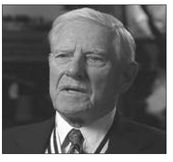
FIREMAN FIRST CLASS KEN SWEDBERG,
whose ship the USS
Ward
fired the first shots of World War II against a midget Japanese submarine, came home to Minnesota with a sense of genuine humility and patriotism. When asked, as a Pearl Harbor survivor, how he wanted to be remembered, he said, “I guess I would like to be remembered as somebody who volunteered for my country.”
whose ship the USS
Ward
fired the first shots of World War II against a midget Japanese submarine, came home to Minnesota with a sense of genuine humility and patriotism. When asked, as a Pearl Harbor survivor, how he wanted to be remembered, he said, “I guess I would like to be remembered as somebody who volunteered for my country.”
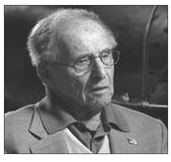
LIEUTENANT STEPHEN WEINER
captured the first Japanese prisoner of World War II at Pearl Harbor, before Kazuo Sakamaki could release the torpedoes from his midget submarine on 7 December 1941. Following the war, Weiner was promoted to captain and stationed at Redding Air Base, where he met his wife. After that, he became successful with the first Kaiser-Fraser automobile franchise in Pennsylvania. He later went into banking. Today, he's an active consultant for the First Republic Bank of Los Angeles.
captured the first Japanese prisoner of World War II at Pearl Harbor, before Kazuo Sakamaki could release the torpedoes from his midget submarine on 7 December 1941. Following the war, Weiner was promoted to captain and stationed at Redding Air Base, where he met his wife. After that, he became successful with the first Kaiser-Fraser automobile franchise in Pennsylvania. He later went into banking. Today, he's an active consultant for the First Republic Bank of Los Angeles.
Â
LIEUTENANT KAZUO SAKAMAKI
, the first Japanese POW of World War II, spent the war in an American POW camp. Sakamaki wrote a book about his experiences in 1949. He joined the Toyota Motor Company in the late 1940s and was sent to South America, and later worked for Toyota in Texas.
, the first Japanese POW of World War II, spent the war in an American POW camp. Sakamaki wrote a book about his experiences in 1949. He joined the Toyota Motor Company in the late 1940s and was sent to South America, and later worked for Toyota in Texas.
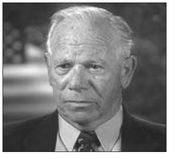
SERGEANT RICHARD GORDON
, a survivor of the Bataan Death March and a slave laborer in Manchuria, was liberated at the war's end. He spent months recuperating aboard various hospital ships. After he recovered, he reenlisted, received a commission to second lieutenant, and went back on active duty. He remained in uniform until 1961.
, a survivor of the Bataan Death March and a slave laborer in Manchuria, was liberated at the war's end. He spent months recuperating aboard various hospital ships. After he recovered, he reenlisted, received a commission to second lieutenant, and went back on active duty. He remained in uniform until 1961.

CORPORAL RALPH RODRIGUEZ, JR.
received a business degree after the war and went to work as a lumber company supervisor. Five years later, he was managing the company. In 1946, he attended the first meeting of Bataan Veterans, a group of survivors of the Bataan Death March. He also served as national commander of the American Ex-Prisoners of War in 1964. He never missed a national convention in twenty-five years.
received a business degree after the war and went to work as a lumber company supervisor. Five years later, he was managing the company. In 1946, he attended the first meeting of Bataan Veterans, a group of survivors of the Bataan Death March. He also served as national commander of the American Ex-Prisoners of War in 1964. He never missed a national convention in twenty-five years.
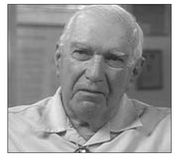
PRIVATE ANDREW MILLER
was promoted after his release from POW camp and was discharged in July 1946. Back home, he entered the University of Nebraska, earned a mechanical engineering degree, and was hired by the GE Corporation. In 1951, he left GE, moved to New Mexico, and took a civil service position with the U.S. Air Force (4925th Test GroupâAtomic), where he worked for twenty-six years. Miller remains active in the American Defenders of Bataan and Corregidor, and serves today as its national commander and national historian.
was promoted after his release from POW camp and was discharged in July 1946. Back home, he entered the University of Nebraska, earned a mechanical engineering degree, and was hired by the GE Corporation. In 1951, he left GE, moved to New Mexico, and took a civil service position with the U.S. Air Force (4925th Test GroupâAtomic), where he worked for twenty-six years. Miller remains active in the American Defenders of Bataan and Corregidor, and serves today as its national commander and national historian.
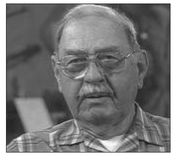
PRIVATE JOHN COOK
lobbied for a memorial plaque to be placed in the Ranger Hall of Fame after his rescue in January 1945 from Camp Cabanatuan. It was finally unveiled on 11 August 2000, more than fifty-five years after that daring rescue. Since the dedication of the memorial plaque, Cook appeared on several national television programs supporting the Alamo Scouts and Rangers. He died in May 2003.
lobbied for a memorial plaque to be placed in the Ranger Hall of Fame after his rescue in January 1945 from Camp Cabanatuan. It was finally unveiled on 11 August 2000, more than fifty-five years after that daring rescue. Since the dedication of the memorial plaque, Cook appeared on several national television programs supporting the Alamo Scouts and Rangers. He died in May 2003.
Â
GENERAL JIMMY DOOLITTLE
was picked up by friendly Chinese, who helped him return to the U.S. weeks after bailing out over China when his B-25 ran out of fuel. He was expecting to be court-martialed for a mission that he felt was a failure. Instead, he was honored by FDR, promoted to general, and went on a war bond tour. After the war, he held a number of “Raider Reunions.” Jimmy Doolittle died on 27 September 1993, fifty-one years following his audacious bombing raid over Tokyo.
was picked up by friendly Chinese, who helped him return to the U.S. weeks after bailing out over China when his B-25 ran out of fuel. He was expecting to be court-martialed for a mission that he felt was a failure. Instead, he was honored by FDR, promoted to general, and went on a war bond tour. After the war, he held a number of “Raider Reunions.” Jimmy Doolittle died on 27 September 1993, fifty-one years following his audacious bombing raid over Tokyo.
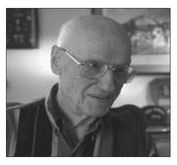
SERGEANT JACOB DESHAZER
was one of the Doolittle Raiders held as a POW. He was captured following the Tokyo Raid that inspired Americans and terrorized Japan. DeShazer experienced a dramatic conversion to Christianity following his reading of the Bible while imprisoned. After the war, he came home to become a missionary, then returned to convince the Japanese people to follow Jesus Christ. Amazingly, one of his converts was the famous Japanese fighter pilot Mitsuo Fuchida, who had led the attack on Pearl Harbor. DeShazer spent over thirty years as a missionary to the Japanese people and retired to Oregon.
was one of the Doolittle Raiders held as a POW. He was captured following the Tokyo Raid that inspired Americans and terrorized Japan. DeShazer experienced a dramatic conversion to Christianity following his reading of the Bible while imprisoned. After the war, he came home to become a missionary, then returned to convince the Japanese people to follow Jesus Christ. Amazingly, one of his converts was the famous Japanese fighter pilot Mitsuo Fuchida, who had led the attack on Pearl Harbor. DeShazer spent over thirty years as a missionary to the Japanese people and retired to Oregon.

Other books
Salvation of a Saint by Keigo Higashino
Blood Mate: A Paranormal Romance by Natalie Kristen
Dubious Allegiance by Don Gutteridge
Deadly States (Seaforth Files by Nicholas P Clark Book 2) by Clark, Nicholas P
The Intern Serials: Complete Box Set by Brooke Cumberland, Rogena Mitchell-Jones, Sommer Stein
Infinity: Based on a True Story by Shanora Williams
Monahan 01 Options by Rosemarie A D'Amico
Bound by the Viking, Part 3: Consumed by Delilah Fawkes
The Perfect Ghost by Linda Barnes
